Song: The Long Conversation For Restless, I’ve been researching 50+ years of CSA survivor activism. The Long Conversation is my way of sharing some of this history and paying tribute to Louise Armstrong - the first survivor to speak out publicly about incest in the US. She placed an ad in a national paper asking survivors to share their experiences and published a collection of these testimonies in Kiss Daddy Goodnight: A Speak Out On Incest in 1978. In the following years more and more people spoke out, more books were published, more survivors organised against abuse and there was growing awareness in the media and wider culture. Sandra Butler published The Conspiracy of Silence: The Trauma Of Incest also in 1978. In 1980, Florence Rush wrote the devastating The Best Kept Secret: Sexual Abuse of Children tracing the religious, historical and cultural embeddedness of child sexual abuse and calling out the Freudian Cover-Up. In 1988, The Courage to Heal was published - a seminal self-help guide for survivors written by Ellen Bass and survivor Laura Davis.
At the same time, there was a massive growth in psychiatry, the wider therapy industry and the practice of diagnosis. The primary cultural response to survivors speaking out was to label and medicate. Notably, both Oppositional Defiant Disorder and Borderline Personality Disorder first appeared in the DSM-III in 1980. Louise Armstrong and her peers saw this as a backlash by patriarchal culture to pathologise and silence victims. This backlash came to a head in 1992 with the advent of “False Memory Syndrome” (I’ll write about this elsewhere). In 1994, Louise Armstrong wrote Rocking The Cradle of Sexual Politics: What Happened When Women Said Incest. It is a brilliant and scathing commentary - you can feel her rage as you read it. Reflecting on the early speak outs she says “it was not our intention merely to start a long conversation”. This is my new favourite quote. Talking about abuse isn’t enough, we need to see change. Reading this history is a different way of reflecting on my own lived experience, which is not just of surviving child sex abuse but also of surviving a culture that others, silences and ignores us. I am so grateful to these pioneering women and so many others who, as part of the second wave of feminism, broke the silence. I never heard the words “child sex abuse” until I was around 20 (in 1991) - I didn’t remember my own abuse until I was 29. It’s because of these women that I did, that I had language and frameworks to start to understand my own experiences and a political framework to understand survivor oppression. I am very much standing on their shoulders - all of us agitating for change now are standing on these shoulders. It’s important to remember that - like every other bit of our collective history we need to make sure it is not forgotten. Louise Armstrong died in 2008 but you can listen to her speech from the 1996 Brighton International Conference on Violence, Abuse and Women’s Citizenship here. I am getting to meet and work alongside women who knew her then who tell me my song conjures her, vividly, which obviously means the world. Hear 'The Long Conversation' and the other Restless songs at our work-in-progress sharing on 11th July at Morley College in London: Restless // A one-hour punk theatre gig Wednesday, 11th July Doors 7pm. Gig 7.30-8.30pm. Venue closes 9pm Morley College, Lambeth North, London This is a Work in Progress Sharing. It is a supportive event about testing new work. Age 18+
0 Comments
Dear Leeds Thanks for having us - you’ve been very inspiring and very brilliant. We know this isn’t the end but we just wanted to take a moment to express some gratitude for the journey we’ve been on over the last year with our second cohort of UpFront Survivors (UFS) emerging creative leaders culminating in our Pop-Up event at the end of March at the gorgeous artist-led space East Street Arts. What a journey! "We're just delighted to be here - it's the stuff that the dreams you never knew you wanted to have were made of." (Kate McStraw, Executive Producer Viv Gordon Company) We chose Leeds as the location for year 2 of UFS after an invitation by our project partners Visible Leeds, who came to the project launch event in Bristol and experienced the power of peer-led creative community first hand. “Not only do we need services to meet survivors where they are … we need to make space for the community to come together and learn from one another, support one another and empower one another and that is the future - and I’m glad the future’s here in Leeds tonight!" (Richard Barber, Visible Leeds)
Over the last year we’ve been working with 9 emerging CSA survivor creative leaders who have taken part in our UFS Creative Leaders Training - an intense journey with over 56 hours of training where we share as much as we can about holding safe(r), accessible, strengths-based creative spaces for CSA survivors. We also reflect on the experience of CSA survivor leadership - thinking about our own personal skills, choices and access needs, the systems, internalised beliefs and fear we break through to do this work and how to make it all sustainable and not burn bright then burn out. The course culminates in all the trainees delivering their first creative workshop for CSA survivors and allies into the Pop-Up space - everything from Creative Dance to Playback Theatre to Mini Gel Plate Printing to Badge Making. It’s so beautiful to watch people step into leadership - to be alongside them as their confidence grows, to witness an expanding sense of possibility and most importantly to watch community forming. They say it better than we do - here’s a co-written poem they surprised us with at the launch. Also at the launch event were speeches from UFS partners Visible Leeds and SARSAS, a Northern Soul DJ, poetry from Clare Shaw and Richard Green and a Wuthering Heights flashmob, part of Clare’s campaign to save Haworth Moor from development. The Open Mic night was hosted by our Leeds born and bred friend, poet and theatre maker Jemima Foxtrot. 14 performers presented a varied programme from spoken word poetry, stand-up and song to contemporary dance - many taking to the stage for the very first time. Award-winning comedy genius Harriet Dyer returned to preview her brand-new work in progress show, SKIN, all accompanied beautifully by our exhibition An ABC of CSA. Illustrator Imogen Harvey-Lewis was with us every day, live drawing in the space. The event ended with a relaxed Sunday Social with tea, cake and more badge-making (we’re obsessed), découpage and zebra nail painting. Since we started UFS in 2022, we have trained 23 creative leaders, facilitated 6 National Creative Social Change Network meetings online and held 3 in person Pop-Up cultural spaces Exeter, Bristol and Leeds. There is a richness to our community coming together, spreading out into these spaces that feels very special. It’s all fuelled by tea and biscuits and a healthy dose of rebellion. So - thank you Leeds. Let’s end with a rousing chorus from Leeds’ most famous anarchist punk band, Chumbawamba - after three, everyone 1,2,3… “I get knocked down, but I get up again You’re never gonna keep me down” Love, gratitude and solidarity
Viv, Kate and the UFS team xx UpFront Survivors is our three-year, Home Office funded programme of creative changemaking, developed and delivered in partnership with SARSAS, The Green House and Coventry University. Campaigners for adult survivors of child sexual abuse receive national innovation award
On behalf of South West-based Viv Gordon Company, Executive Producer and Co-Founder Kate McStraw has received a national award from Innovate UK, the UK’s Innovation Agency. Building on the success of Innovate UK’s targeted programmes, such as Women in Innovation and Young Innovators, this latest funding is designed to find and support fresh innovation talent from across the UK.
Viv Gordon Company has been awarded a grant of £50,000 to support the upscaling and go-to-market launch of An ABC of CSA, a unique, creative education resource created to support better conversations about child sexual abuse (CSA), a global issue that impacts 11million adults in the UK alone**, and many more worldwide. Additionally, as one of the 233 high-potential innovators selected, Kate will also receive 12 months of tailored business support to help her develop the company and business strategy. Launched as a prototype exactly a year ago, An ABC of CSA is a set of 26 beautifully illustrated alphabet cards co-created by Viv Gordon with over 40 CSA survivors and illustrated by Imogen Harvey-Lewis. CSA survivors often struggle to find the words to talk about their experiences, and many support, health and social care professionals lack the knowledge to engage in confident conversations with our community, which reinforces isolation and social exclusion. The award will enable investment in production, branding, cross-sector consultation and additional staff capacity for An ABC of CSA to roll out this CSA survivor-led resource and corresponding training service to relevant sectors nationally. These include front-line sexual violence support services, therapists, police and justice departments, social services and mental health services. Kate McStraw comments, “I’m delighted to have received this level of support from Innovate UK. To have recognition of our work as innovation within communication and social equality feels incredibly powerful. It is also poetically timed as it’s been a year since we first launched An ABC of CSA. I am excited to develop my business skills and upscale our company to be able to deliver this work with wider reach and impact.” Viv Gordon, Artistic Director of Viv Gordon Company, adds, “Our work is about harnessing CSA survivor creativity to social change. Each journey of survival is unique and impossible to encapsulate in 26 cards. The ABC isn't a text book – it’s a nuanced, emotionally resonant reflection of survivor experiences designed to put scaffolding around difficult conversations, not to tell anyone how to think or feel. The cards sing with grief, rage, love and hope. We are so grateful to the diverse group of 40 CSA survivors who shared their words to make this powerful resource.” CSA impacts all demographics and all protected characteristics, yet we lack representation in the arts sector and wider society. Our experiences have been taboo and omitted from diversity and inclusion discourses. An estimated 75% live with long term mental health needs***. The inclusion of An ABC of CSA into this prestigious award programme, which was amongst the most highly engaged funding competitions Innovate UK has ever delivered, is not only a significant business development milestone for Viv Gordon Company; it represents significant progress towards increased access and inclusion and social change for the CSA community. - ENDS - * based on individual grants of £5,000 plus a £10,000 contribution to living allowances or £50,000. ** Radford, L. et al (2011) Child abuse and neglect in the UK today. NSPCC *** www.csacentre.org.uk About Innovate UK Innovate UK, part of UK Research and Innovation, is the UK’s innovation agency. It works to create a better future by inspiring, involving and investing in businesses developing life-changing innovations. Its mission is to help companies to grow through their development and commercialisation of new products, processes and services, supported by an outstanding innovation ecosystem that is agile, inclusive and easy to navigate. Calling all CSA survivors and allies
How to join in Wear zebra print or black and white clothing. You could wear zebra socks, earrings, badges or anything else. Be as bold or discreet as you feel.
Please remember that this design is open to be used by others and leave it as you found it (i.e. please delete your image before you leave Canva and please don't change the design). If you would like to make changes to the design please first click on the "duplicate page" icon and make any design changes to the duplicate only, which will leave the original unchanged. Please remember to delete the duplicate before you leave Canva. Happy designing! Why zebras?
BUT zebras are brilliant and we think they are a potent image to celebrate CSA survival because:
Spread the word If you feel safe to please help us spread the word - everyone can join in to stand in solidarity with the CSA survivor community - talk to your friends and colleagues and tell them how to get involved by wearing and sharing zebra. Remember
Sources:
* Radford, L. et al (2011) Child abuse and neglect in the UK today NSPCC ** The Report of the Independent Inquiry into Child Sexual Abuse (IICSA), 2022. During the '16 Days of Activism' campaign 2023 we have shared the things we are investing our time, energy and resources into to combat CSA as a form of gender-based violence. Our work is a creative campaign to nurture voice, visibility, community and leadership by, with and for CSA survivors, so we can lead social change. Find out more below: VOICE
Our work seeks to disrupt the cycle by supporting the CSA survivor community to find the words to talk about our experiences, by providing avenues for CSA survivors' voices to be heard and harnessing our voices to social change. The creative approach enables us to collectively express the nuances, complexity and contradictions of intersectional CSA survivor experiences. We need these spaces to listen to our own voices, to hear each other, to uncover our shared and diverse narratives. And we need platforms to challenge our oppression and speak truth to power. Our projects provide spaces for survivors to safely explore and articulate our journeys as well as find ways into activism and campaigning so we can represent our needs, interests and concerns. We recognise that it is not safe or preferred for everyone to speak out publicly so we do lots of creative co-produced work that enables people to contribute their voices anonymously. For others, now is the right time to share their voices publicly or in specific settings and we provide platforms, spaces and guidance for this to happen in safe and supported ways. One thing is undeniable - collectively our voices are getting louder - we are proud to be part of a growing ecology of CSA survivor leaders, artists, activists and organisations - as a community we will not accept the silence any more. We are breaking that cycle. Our voices will be heard. VISIBILITY
We lack a sense of community identity. Most CSA survivors have never knowingly met another CSA survivor. Many of us have not disclosed to anyone, even closest friends and family, let alone colleagues and wider social circles. The dominant culture treats our experiences as taboo, something to be discussed in hushed voices in private (if at all) which perpetuates our identity as “other.” When shame prevents us from self-identifying it is impossible to find our way into community. Our work champions a culture of unshaming and recognises this needs a thoughtful, care-filled approach so we work towards visibility in a range of ways. We offer positive role models that contradict conventional perceptions of CSA survivors and offer new strengths-based narratives. We believe “you can’t be what you can’t see”. Visible CSA survivor leaders, artists and activists offer role models which emphasise alternatives to victim blaming stereotypes that keep us silent and separate and prevent collective action. We want current and future generations of CSA survivors to see empowered CSA survivors authentically navigating the complexity of the survivor experience and working together for social justice in safe, equitable and connected ways. This includes leaders who choose to or need to be visible in chosen spaces and not in others, artists whose creative work is visible but they as an individual are not and activists who use pseudonyms and organisational names to carry out their work. We celebrate the many ways that survivors say “I am here”. We centre individual safety, consent and choice. Our work is about building VISIBLE COMMUNITY that does not rely on individual visibility as this is not the safe, possible or preferred option for everyone. We affirm that being visible is not better than being safe and comfortable. COMMUNITY
Our work seeks to reduce isolation by developing the infrastructure for community connection and building cohesive communities of belonging. We do this by working to understand the common marginalisations we face in the dominant culture. We are experimenting with accessible and inclusive cultures and experiences. A central question drives our practice - what do we need to feel safer and more included in creative workshop, training or cultural spaces? What does a CSA survivor centred space look and feel like? All marginalised communities have places where they gather, feel ownership and freedom from the micro aggressions and oppressions they face in the wider culture, places like pubs, clubs, community centres… We don’t have these yet. Our pop-up cultural spaces explore what it is like to be together as a connected community. We recognise that gathering in person is not everyone’s preference and there are barriers to doing so including geography, finances, transport, confidence and safety, so we also work to build community online through remote participation in workshops and events. What is undeniable is that communities make change. Throughout history all civil rights movements and all social change has happened when marginalised, oppressed communities come together to represent their own interests, rights and concerns. Our work visions a huge connected CSA community mobilised for social change. We vision critical mass and survivor-led narrative, cultural and systems change. Our ultimate aim is for the CSA survivor community to be a protected under the Equalities Act giving us statutory access across all sectors. LEADERSHIP
The answers to that question are complex. Many of us have had our education and careers disrupted through the social, physical and mental health impacts of trauma. For lots of us just getting out of bed in the morning is victorious. The impact of stigma and medical model perceptions of survivors mean that negative stereotypes about us persist - we are seen as deficient, less capable, more vulnerable, less professional, too emotional, unreliable, oversensitive and disruptive. Many of us have internalised these beliefs and have low confidence and aspiration.
Our strengths-based model that emphasises the positive qualities inherent in survivors - we are creative, resilient, resourceful, observant, emotionally attuned human beings - we’ve had to be these things otherwise we would not have survived. What if the issue is not us, but a lack of access. What if we can harness these qualities to make change. We work within a social model of disability which seeks to understand and remove barriers CSA survivors face in progressing into leadership - some of which are practical and lots of which are changing working cultures and attitudes. We create pathways for CSA survivors into cultural leadership through training, mentoring and creating opportunities with specialist access support so that together we can lead change. There are so many different ways of leading - as artists, facilitators, activists, organisers, fundraisers, comms people, wellbeing support. Our 11 million strong community needs more leaders - there’s a lot of work to do and it’s gonna take all of us. Next year marks my 10 years making work as a visible CSA survivor artist activist. My first show, I Am Joan, spoke out about child sexual abuse and explored what it might be like to listen to the quiet, insistent voice inside, follow your intuition and back your own horse however scary, radical and countercultural that horse is. It was inspired by famous Joans who did just that: Joan of Arc, Joan Jett, Rivers, Baez … Kick-ass women who refused to be silent despite huge risks…
I talk about what it was like making and performing that show in my TedX talk. What I will say now is that it was scary and lonely - I had incredible support, friends and collaborators but I didn’t know any other CSA survivors who were speaking out - no role models, no peer artists, no route map - just intuition … In one scene, I enact burning at the stake as Joan of Arc and shout the following words in a comedy french accent - words that reflected my experience as a survivor but that I couldn’t yet say (let alone shout) in my own voice All I do is speak the truth I will not be silenced I will be heard It is you they will judge This is nothing to do with me This was me trying to say “I didn't do anything wrong - it wasn’t me - so why am I being judged, shamed, persecuted?” If you’re reading this thinking the word “persecuted” is too strong then you might want to consider how 11 million adult survivors in the UK are kept separate and silent. Not all oppression is overt. So much is part of our cultural wallpaper - institutionalised, systemic and semantic. Ours is oppression by omission. A huge community in hiding, stuck between the chemical cosh of mental health provision and a catastrophically broken victim blaming justice system - either way we are pathologised, stigmatised, discredited and overlooked. We are a population no-one has to think about until they do … Fast forward 9 years and change is exquisitely unfolding: I’m getting ready for my next project - a series of punk songs that will eventually form the spine of a new show where I will use my own gnarly, raging voice to shout loudly about abuse, survival, social justice and revolution. And I have peers! And we are role-models for each other - because there is still no map, we are writing the map together. But Viv Gordon Company sit within an international community of brilliant CSA survivor artists and activists connecting, collaborating and driving change in defiance of the many barriers we face. We are survivor-led not just by me but by 51%+ representation on all our teams. Our core belief as a company is that CSA survival is a creative act - we are inherently creative people otherwise we would not have survived. We champion voice, visibility, community and survivor leadership and this week - for Creativity and Wellbeing Week 2023 - we have been joyously celebrating some of the survivor artists and activists we work with on our board, our steering group, our emerging creative leaders and others - a Dazzle of Zebras! The zebra thing comes from our ABC of CSA project. The Z card is “feeling like a zebra in a world of giraffes” which initially speaks of feeling othered and alien as many of us do. But there’s a lot of us zebras and we’re pretty cool - each with our own unique stripe pattern and strong kick - together we are a super herd. Lots of us are starting to wear zebra print as a kind of survivor pride - we’re “rebranding” survivorship, unshaming and gathering as a community - it's all very empowering and beautiful, and undeniably bittersweet too. Our drive for visibility is about community visibility, not about all survivors being individually visible because those of us who are able to speak out are the tiniest fraction of our 11 million strong community. If you are reading this and you’ve not been able to tell anyone or you need to compartmentalise your survivor identity to specific spaces - I hope you know how dazzling you are, how much you matter, how happy I am that you survived and how none of this is your fault - the deficit is cultural. I hope one day it will be safe for us all to speak and gather freely - I will die on that hill (in a fabulous zebra print tuxedo) I’ve spent some of this week chatting to a brilliant wise woman who is not able to safely self-identify or attend any in person events, but is still very active in our community, about the role of creativity in her life. I want to give her the last word … “Torn in a world in which silence and speaking can both feel particularly violent and frightening to me, creativity points to a possible, initial, way through. In a world in which there is a ferocious attempt to control, obscure and re-write history, art stands in the way: fragments of non-erasable reality. Art speaks …” Illustration: Imogen Harvey-Lewis Woo hoo! 135 miles and 4557 metres climbed (that’s over 7 small mountains!) and the South Devon Restless walk is complete. Today we did a shorter 11 mile stretch between Wembury and Plymouth, which was good because at times we were walking into strong winds and more importantly it gave me time to reflect on the week and drink in the wild, exuberant sea.
The project is named for her - the restless sea - she just keeps going no matter what - even when we fill her full of plastic or toxic shit - she carries on being her magnificent self. She is my role model and an object lesson in activism. Every single drop is significant, the sea is made up of millions and squillions of them and collectively they are powerful beyond measure. They change the landscape over time. And there are millions of us - adult survivors of child sex abuse - 11 million in the UK alone - 1 in 6 of us and we can change the cultural landscape over time. We just have to come together and be unstoppable - sounds simple - but (and it's a big BUT) there are sooooo many barriers to us coming together. We live in a society that doesn't want to talk about abuse, many of us have been threatened as children that terrible things will happen if we tell, many of us are trying to protect family members who will be devastated to find out what has happened, many of us have been shut down when we’ve tried to talk, called liars and been disowned by people we love and yet more of us have been diagnosed with mental disorders or criminalised or otherwise problematised in any way possible to shut us up. And as for being unstoppable? Well surviving is exhausting, keeping huge reality shattering secrets is exhausting, being in huge amounts of emotional pain is exhausting, sometimes just getting out of bed is impossible. People forget what the word survivor means - it means we didn’t die (and lots of children do) - it means we are still alive (and lots of us die by suicide, addiction, eating disorders, homelessness, domestic violence and the rest) And that’s why we need to take things one step at a time, keep putting one foot in front of the other and slowly, as we feel able to, as we feel safe to - we need to find our way to community where we can carry each other along as the drops of water get carried along in the ocean. If you are a survivor my message to you is - be incredibly nice to yourself there is no rush - we have a mountain to climb together and just by surviving this day you are defying the patriarchy - your very being is triumphant and I’m sending you all of my love. You can find out more about Restless here: https://www.vivgordon.com/restless And you can financially support the project and the work we do here: https://www.buymeacoffee.com/vivgordonco Ow ow ow - everything hurts! But most of all my poor little left toe looks like it’s been in an explosion - I am lying in bed with plasters and paracetamol. Today has been really challenging - it started beautifully with the Bantham Ferry then I walked up the cliffs outside Bigbury-on-Sea as the wind gathered pace. It was sooo strong. I stopped to ask the RNLI if people ever get blown off cliffs - they said that wasn’t something they’d ever had to deal with so reassured I pressed on.
I made it about 2 more miles along the coast - it was exhilarating but then having been blown over 3 times and every single step being a struggle I decided to head inland before the Erme Estuary. I’m glad I did because I’m safe but it involved a lot of walking on lanes which is more tiring than lovely footpaths and the landscape was beautiful but nowhere near as inspiring (particularly as it was often hidden by high hedgerows). I got lost twice, phoned my husband and had a little cry, nearly gave up but persevered. I’ve walked 23 exhausting, toe-crushing miles and climbed 900 metres. I thought about a lot of things that resonated with my journey as a survivor. It’s really hard when life is a struggle - hard to feel ok, hard to keep going, hard to be positive. Why should we be positive - it's shit being in so much pain - it's enough just to be. I also noticed how much I buzz on excitement and adrenaline - it makes everything very present moment - there’s no space to think about difficult feelings or painful memories. I tend to seek out heightened experiences and have to be careful how I channel that - I can easily veer towards addiction. I honestly couldn’t have been happier than when I was nearly being blown away and then I felt bored, petulant and frustrated when I took the safer option. I don’t really believe in recovery. I think we just learn to live with our stories and I do think we can get better at doing that, get to know ourselves better and learn to treat ourselves with the love we deserve - at least some of the time. I think being able to have a word with my inner adrenaline junkie and choosing to not be blown off a cliff was the more adult self loving option, but then I had to be very nice to the childlike bits of me that felt disappointed, cheated out of an adventure and missed my wild friend the sea. When I did catch sight of her again, at dusk in Wembury, my heart did a little leap. I wanted to shout “I’m coming to play tomorrow” but I was in a little housing estate and felt uncharacteristically self conscious. The wind is still blowing up a hooley out there and the forecast is for strong winds into tomorrow but I have everything crossed (except my ouchy toe) to be back on that path in the morning. You can find out more about Restless here: https://www.vivgordon.com/restless And you can financially support the project and the work we do here: https://www.buymeacoffee.com/vivgordonco Just a quickie today as it’s officially my day off - I have rested, been to the beach, hired a bodyboard and a wetsuit and spent a joyful hour and a half bobbing around in Bantham Bay. It was soooo great to get in the sea and feel its power, get turned upside down, ride the waves and come out all salt kissed to my hot flask of herbal tea. I’m quite bad at bodyboarding though and need tips!
I’m glad I’ve rested because tomorrow is a humdinger. We have to cross 3 estuaries (Avon, Erme and Yealm in that order) - only 2 of them have ferries and then only at very limited times. The Erme is only crossable at low tide which is at 6am but to get there you have to cross the Avon and the first ferry doesn’t go until 10am. There’s also a gale coming apparently which means the Yealm ferry won’t be running. You can see the problem. I spent this morning contingency planning - I feel like a stubborn mule but I just don’t want to get in a car. I messaged a lifeboatman I met in Salcombe to see if he knew anyone I could hitch a lift with by sea but he said it would be too “spicy” out there with the forecast winds! So the only option is to get the Avon ferry, walk to the Erme, head inland 4 miles up the estuary then pick up a path that takes me round the Yealm to my destination. It's gonna be between 22-25 miles but it will be more sheltered from the strong gusts predicted at the coast. I’m celebrating being adaptable and un-freaked out about it as that hasn’t always been a strong point. I feel strong and determined and like I want a good stash of both protein and chocolate for the journey. Wish me luck! It's a total joy and privilege doing this project. What motivates me the most is the messages I get from survivors telling me what it means to them and actually all the messages of support. I’m really moved by people’s #MyLineInTheSand contributions and feel proud to be part of such a kick ass community. And I’m incredibly grateful to those of you who have donated to the participatory work we are doing in June connecting with groups of Devon based survivors and allies to do creative walking activities in this incredible landscape. Thanks so much - we’re nearly half way to our target of £500! If you want and are able to make a donation you can do it here: https://www.buymeacoffee.com/vivgordonco. Lots of love groovers xx Today’s journey kicked off with a ferry between Salcombe and South Sands - because the boat can’t get to the shore you have to disembark via a sea tractor! I had no idea such things existed. It was a fun and splashy start to the day.
On the jetty I met a guy called Jack who is 2 weeks into his 630 mile walk of the whole South West Coast Path - he started in Poole and will end in Minehead in about 6 weeks time. I’m jealous - not only of his youth and long stride - but of the fact he can just keep going. I feel like I could walk forever. Yes my feet are a bit mullered but I just forget about that once I’m out on that beautiful coastline. He’s a philosophy graduate - so I got to philosophise to my heart’s content - waxing lyrical until the sea tractor delivered us to the path. Two ideas underpin a lot of my work and the Restless project in particular. First is the idea of Injustice. Our conventional understanding of justice is something that is sorely lacking for child sex abuse survivors - most of us never see anyone prosecuted or convicted for the crimes they committed against us. But survivors face injustice at every turn - we struggle to access appropriate support and are more likely to experience homelessness, addiction, emotional distress, long term health conditions, suicide and so on. And it runs even deeper than this. Philosopher Miranda Fricker formulated the idea of Hermeneutical Injustice - this is when we lack the language or framework to fully understand or communicate our own experiences because those experiences have not been conceptualised adequately in our culture. This is what it is like being a survivor. As a society we’ve spent so long burying our heads in the sand we just don’t know how to talk about this stuff. That’s why writing poetry and songs feels so important - to find non-medical, nuanced and imaginative language to gradually illuminate the complexity of our experiences. Second is the idea of Phenomenology. This is a branch of philosophy that is about describing how we experience the world. It moves away from stuffy ideas about academics being objective or scientific and acknowledges that we can only ever see the world through our own unique lived experience. It concentrates on the detail of what it’s like being human. This is how I write. I observe what it is like for me to walk uphill for example - the thoughts, feelings and sensations I have while I’m doing it and I write them down. Or I watch the waves crashing against a rock and think about what that evokes for me personally - it's not the truth - someone else watching the same waves will experience that in a completely different and personal way. What for me is exhilarating may be frightening for someone else or cathartic for another. Of course how we see things is shaped at least in part by previous experience and what “roles” we play - a doctor and patient will experience the same medical appointment completely differently right. So my experience of walking the coast path will be shaped by the fact that I am here very deliberately as a survivor writing about surviving - very different to Jack’s who has his own story and reasons for being here. I’m probably not explaining this very well. Jack would probably roll his eyes (he wouldn’t he was too nice for that). But I hope it gives you a bit more insight into what I’m doing and why. You can find out more about Restless here: https://www.vivgordon.com/restless And you can financially support the project and the work we do here: https://www.buymeacoffee.com/vivgordonco |
welcome to my blogI'll be posting my personal reflections on creating work as an artist and survivor of childhood sexual abuse, my work with the wider sector and interesting developments in arts and mental health. Categories
All
Archives
June 2024
|



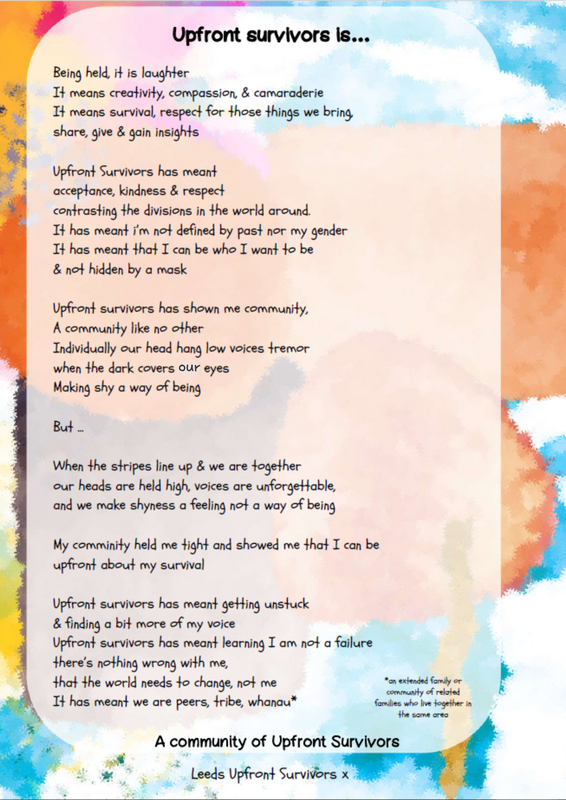
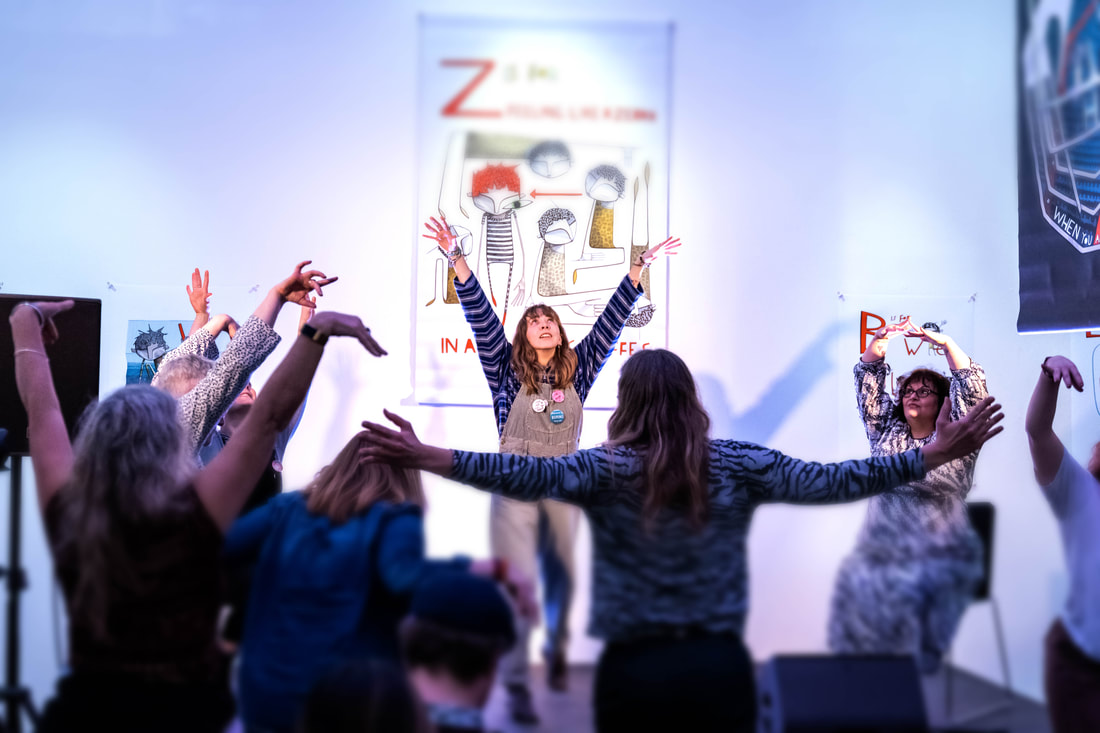

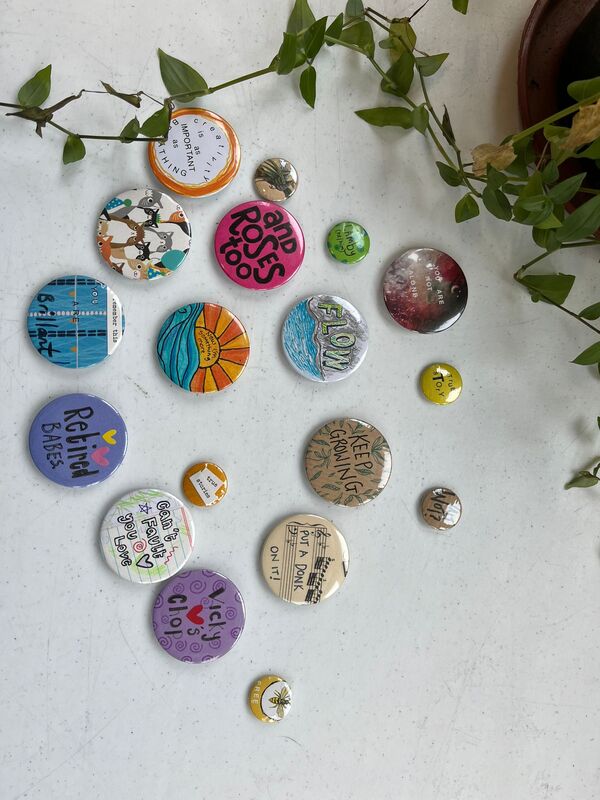
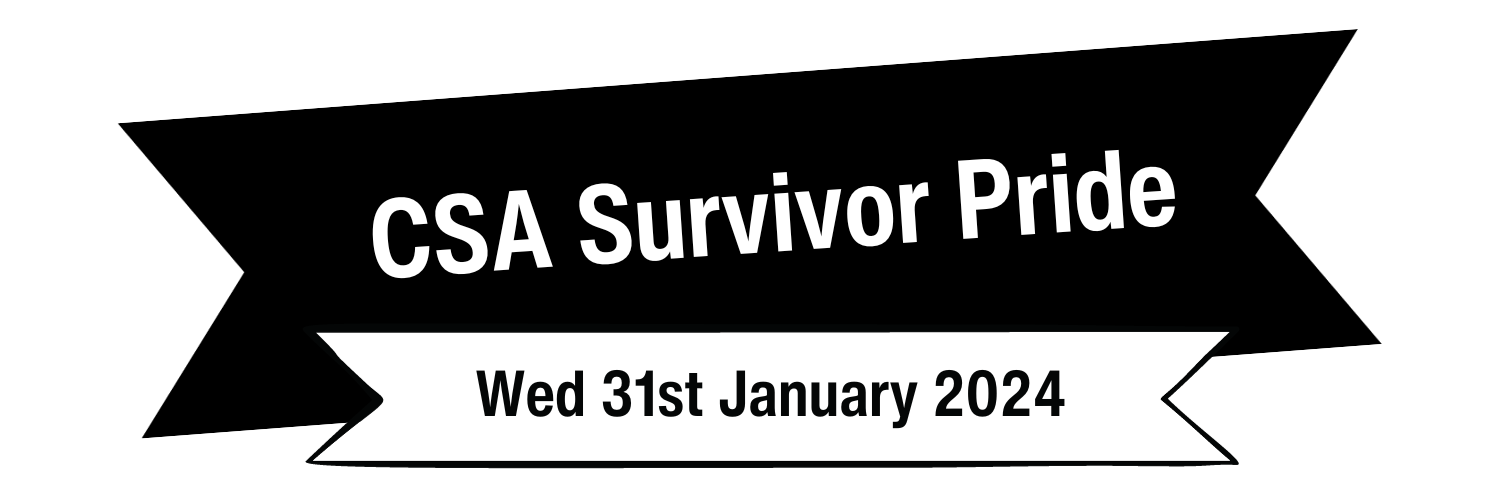
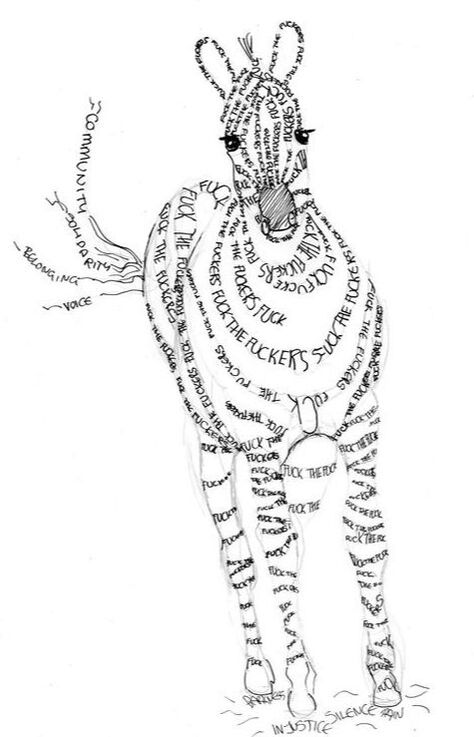
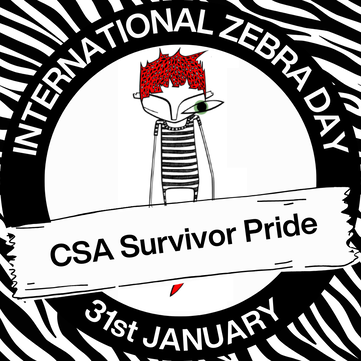
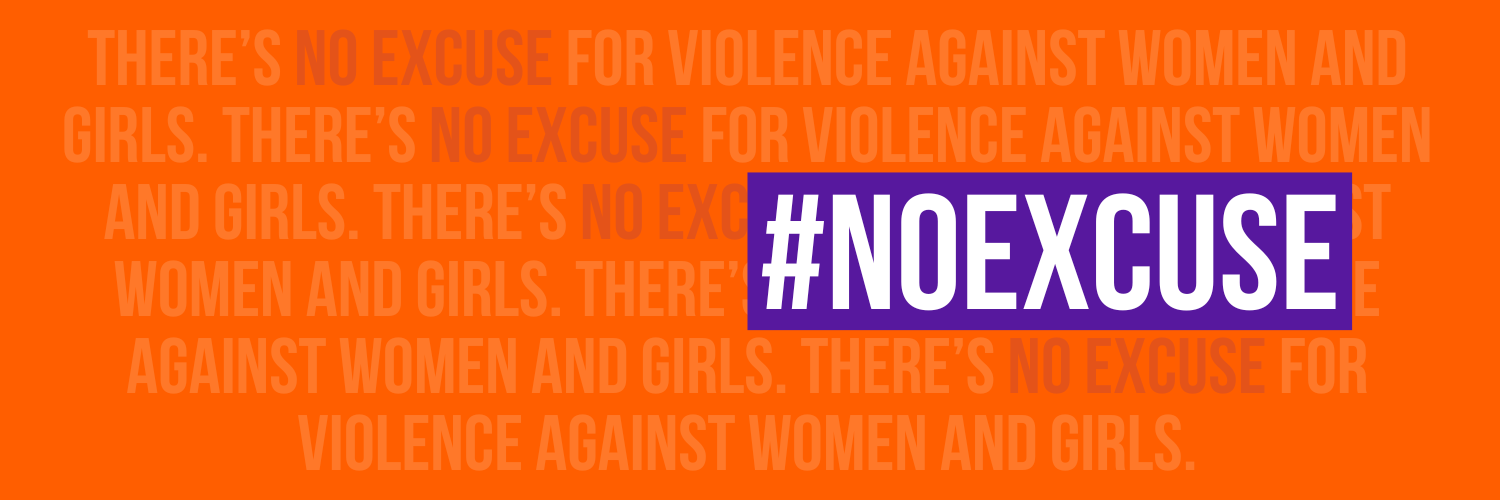
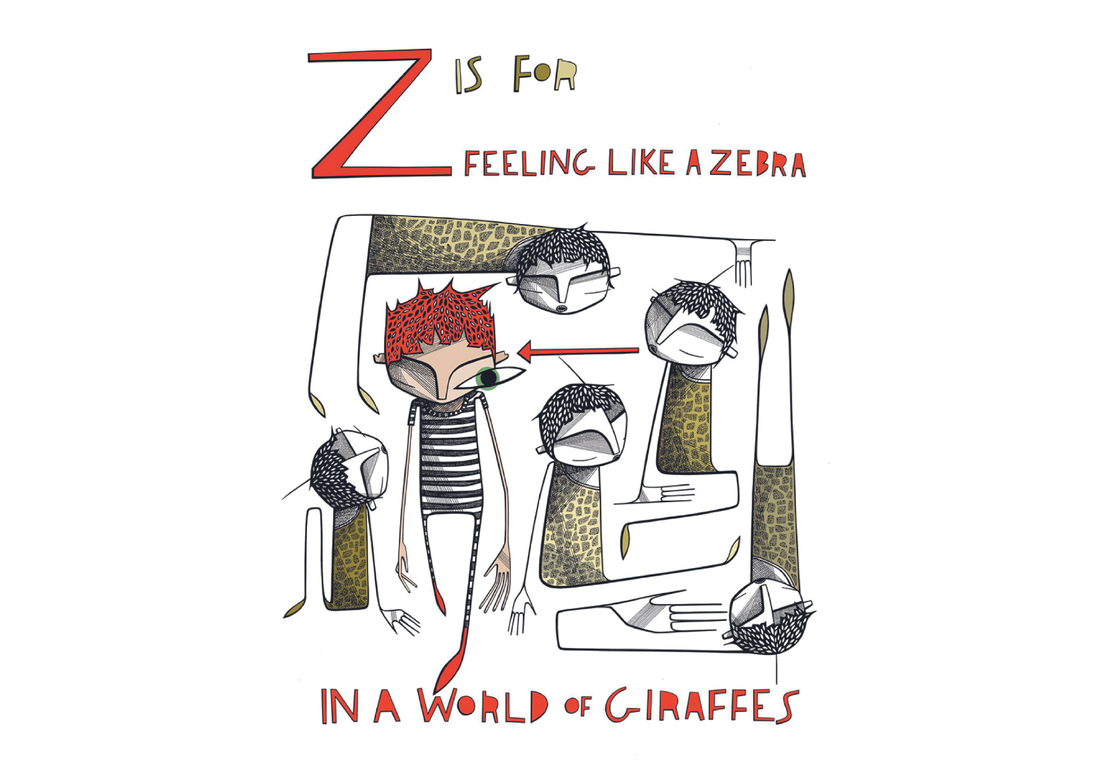
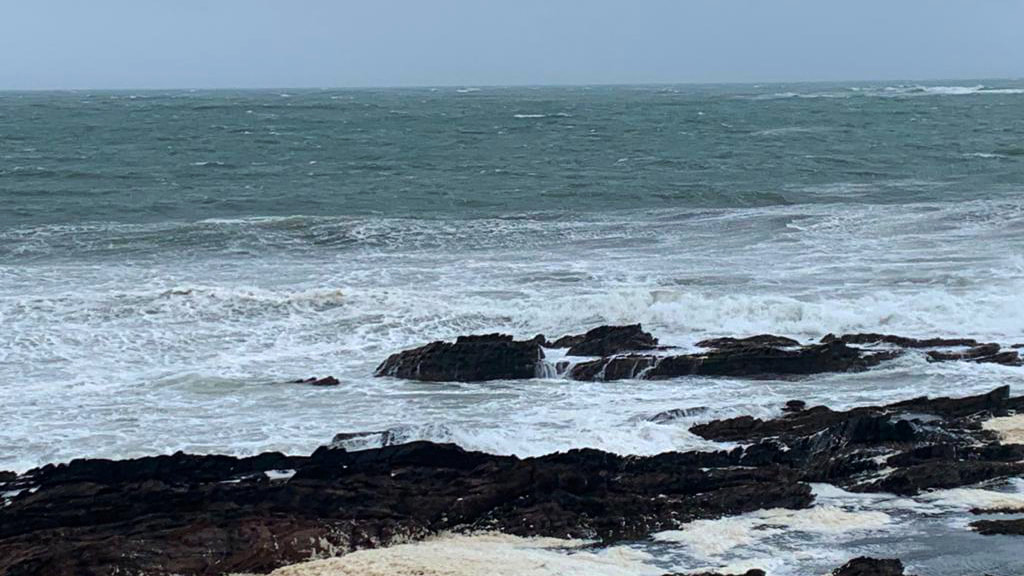
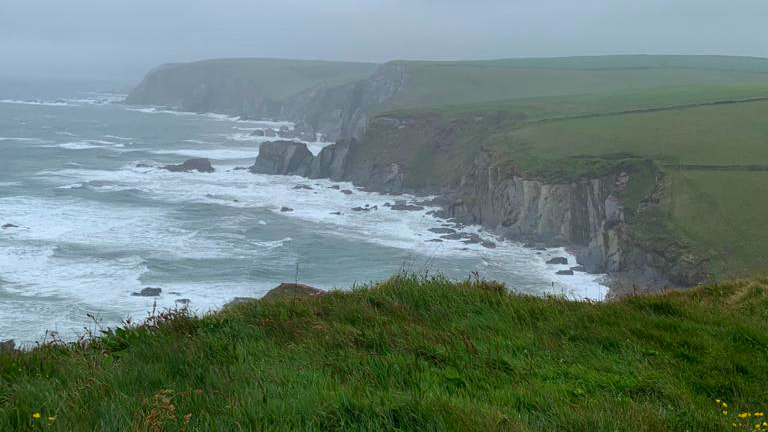
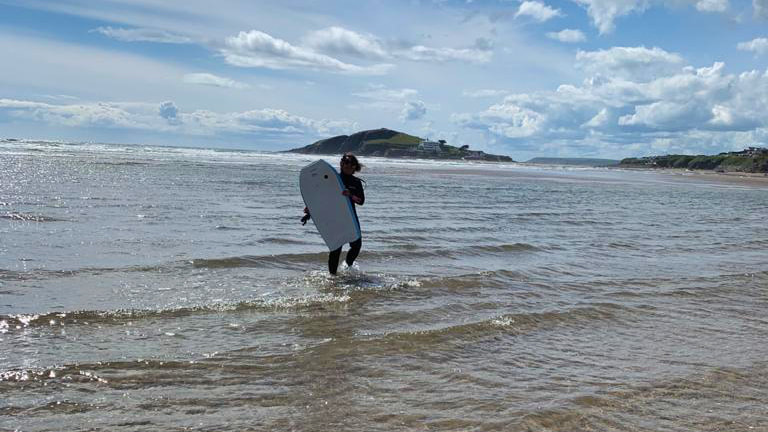
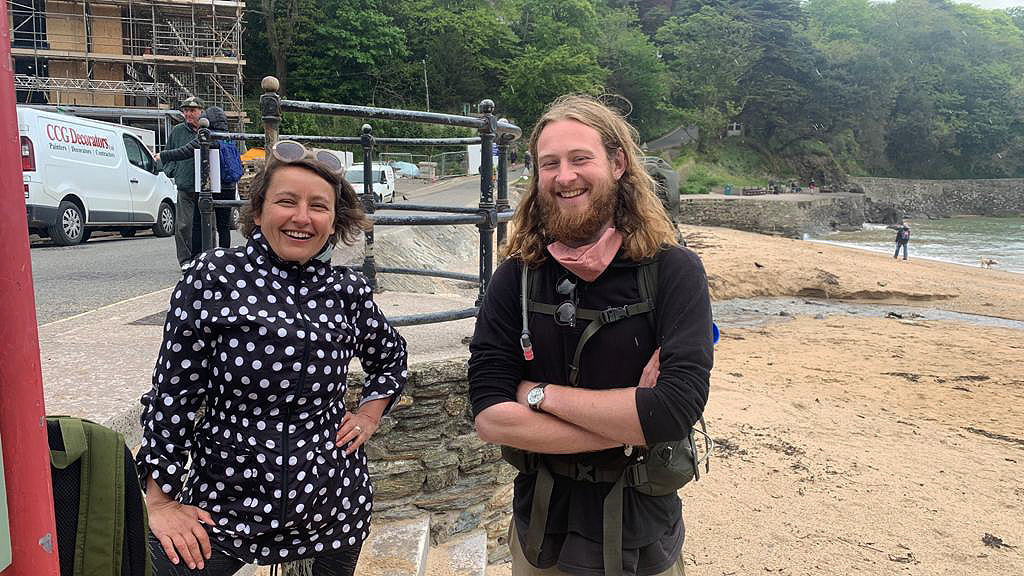
 RSS Feed
RSS Feed